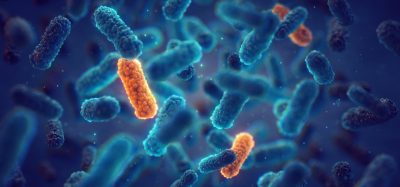Mapping functional states of oncoproteins with AI
Posted: 12 February 2024 | Drug Target Review | No comments yet
Researchers have developed a computational analysis tool which will improve patient stratification and enable personalised medicine.


Researchers from the University of Bath and the University of Nottingham have developed a new artificial intelligence (AI) tool to map the function of proteins in a cancerous tumour. This will allow clinicians to decide on how to precisely target treatment.
In cancers like clear cell renal cell carcinoma (ccRCC), responses to current treatments vary for each patient, making it challenging to find the correct drug treatment regime for individuals. Recently, the cancer therapeutic Belzutifan was approved to treat ccRCC, but it only has a response rate of 49 percent in patients with the most common form of the condition.
To understand better why some patients respond better than others, the team of scientists, consisting of biophysicists, biologists and computational scientists, analysed the function of Hypoxia-Induced Factor Alpha (HIF2α), a key target of ccRCC that is blocked by Belzutifan.
Previous studies have demonstrated that the levels of HIF2α do not necessarily correspond to the aggressiveness of the tumour, and that counterintuitively when there were greater levels of the protein present, the HIF2α was less active. Therefore, administering higher doses of Belzutifan potentially exposes the patient to costly, toxic therapeutics that may not work and could even make the tumour more drug resistant.
The team created a new tool, named FuncOmap, which maps the functional state of target oncoproteins onto the tumour images. Dr Banafshé Larijani, Director of the Centre for Therapeutic Innovation at the University of Bath commented: “People respond to drugs very differently. So, it is crucial to be able to predict how patients will respond to drugs individually so a therapy can be tailored to be effective whilst giving the lowest dose to minimise side effects.”
She continued: “Our new computational analysis tool uses precision to directly map the functional states of oncoproteins in patients’ tumour sections, so that clinicians can improve patient stratification, enabling personalised medicine.”
To optimise the tool further in the clinical arena, the team are collaborating with Dr Amanda Kirane’s Laboratory, as well as other surgeons and clinicians, at Stanford University School of Medicine. Dr Jonathan Knight FRS, Vice-President (Enterprise) at the University of Bath, concluded: “The excitement of this paper lies not just in the work being reported, but in its illustration of how linking the research areas of biophysics and translational medicine with modern computational science promises to accelerate the translation of research into valuable tools for the clinical environment.”
This study was published in BJC Reports.
Related topics
Artificial Intelligence, Cancer research, Computational techniques, Personalised Medicine
Related conditions
clear cell renal cell carcinoma (ccRCC)
Related organisations
Nottingham University, University of Bath








